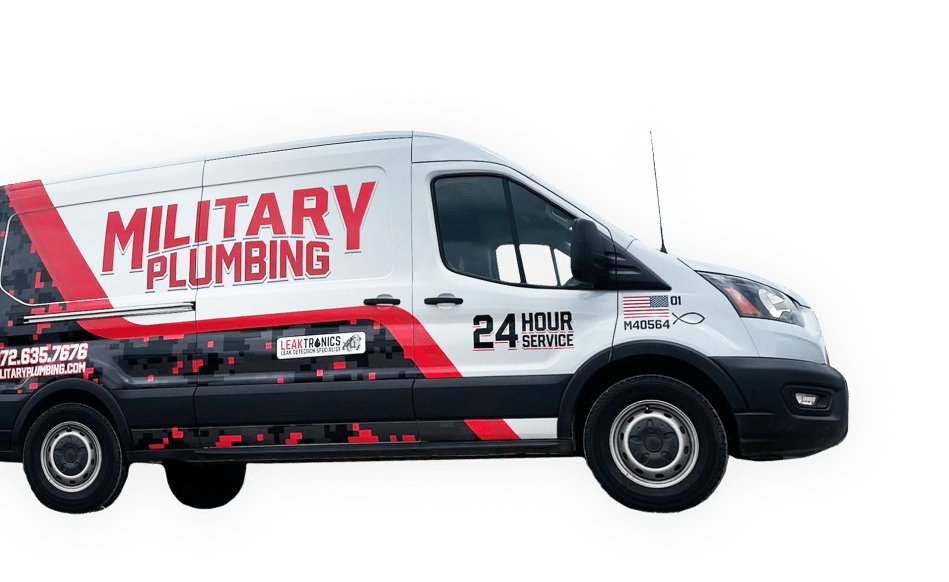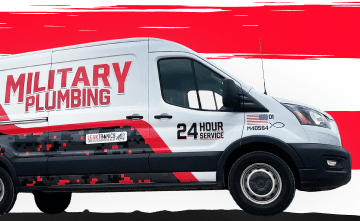Texas Foundations, Sewer Scopes, and Soaker Hoses: What Every Homeowner Should Know
In Texas, we pride ourselves on wide-open spaces, strong homes, and doing things the right way. But here’s the truth most folks don’t realize until it’s too late — the ground under your home can cause just as much damage as a bad storm. Thanks to our famously unpredictable soil and long dry seasons, homes across the Lone Star State are at serious risk of shifting foundations, cracked plumbing lines, and costly repairs.
That’s why it’s so important to understand two key things that can protect your home: sewer scope inspections and the proper use of soaker hoses. These simple tools can help prevent serious damage before it starts, and save you thousands down the line.
The Texas Soil Situation
Our soil is unique — especially in North and Central Texas. It’s full of clay, which expands when it gets wet and contracts when it dries out. That means when we go through long stretches of dry heat (which is pretty common ’round here), the ground beneath your foundation shrinks and shifts. And when it finally rains? The soil swells up again. This constant movement can wreak havoc on your home’s foundation and plumbing.
Over time, this shifting can cause everything from small cracks in the walls to major plumbing line breaks. And trust us — when a sewer line breaks beneath your slab, you’re looking at a repair that can cost you far more than just a headache.
What is a Sewer Scope?
A sewer scope inspection is one of the smartest investments you can make in your home. It’s a simple process where a small waterproof camera is fed through your home’s sewer lines, allowing a licensed plumber to get a clear view of what’s going on underground.
Here’s what a sewer scope can spot:
- Tree root intrusion
- Cracked or collapsed pipes
- Pipe corrosion
- Blockages or bellies (sags in the line)
- Early signs of shifting due to foundation movement
Why does this matter? Because early detection saves money. If caught early, a small crack or partial blockage can often be repaired without digging up your entire yard. But left alone, these issues can lead to full pipe failure, sewage backups, and foundation damage that requires major excavation.
When Should You Schedule a Sewer Scope?
We recommend scheduling a sewer scope:
- Before buying a home (especially older homes)
- If you notice frequent drain backups or slow flushing
- If your yard has soggy spots or unexplained odors
- After long dry spells followed by heavy rain
- As part of routine home maintenance every few years
Sewer scopes are quick, non-invasive, and often give you peace of mind — especially here in Texas where soil movement is so common.
The Power of Soaker Hoses
Now let’s talk about an old-school tool that still works wonders: the soaker hose. It might seem too simple to make a real difference, but using a soaker hose properly can help stabilize your foundation and reduce the risk of shifting and cracks.
When the clay-rich soil under your home gets too dry, it pulls away from the slab. That creates voids and uneven pressure points — and over time, this can cause the slab to sink or tilt, putting stress on your pipes. A well-maintained watering schedule using soaker hoses helps keep the moisture levels around your home’s foundation more consistent.
Here’s how to use a soaker hose effectively:
- Place it 12–18 inches away from your foundation (not right up against it)
- Run the hose 2–3 times a week during dry seasons, for about 20–30 minutes at a time
- Avoid overwatering, which can cause soil to swell too much
- Use a timer for consistency and consider a moisture meter to monitor the ground
By keeping the soil evenly moist, you help reduce expansion and contraction — keeping your foundation steady and your plumbing lines safer.
Sewer Lines and Foundation Damage: The Costly Connection
Many homeowners don’t realize how closely their plumbing system is tied to their foundation. Sewer lines often run underneath the slab, and when the ground shifts, so do the pipes. If the soil pulls away and settles unevenly, it can put pressure on the sewer line — causing cracks or separations in the joints.
Sometimes, the first sign of a sewer line problem is a foundation issue: a hairline crack in your wall, a sticking door, or a sloped floor. By that point, the damage may already be done. That’s why sewer scopes and soaker hoses go hand-in-hand. One helps identify damage before it spreads, and the other helps prevent the conditions that cause damage in the first place.
Bonus Tip: Water the Whole House, Not Just One Side
One mistake we see a lot in Texas neighborhoods is folks using soaker hoses only on the sunny side of the house. The problem is, uneven watering causes uneven soil movement. If one side of your home has dry, compacted soil and the other side stays moist and soft, your slab is getting pulled in two directions — which just increases the risk of structural problems.
Soaker hoses should wrap around the full perimeter of your home, ensuring the entire foundation is supported evenly. It might take a little more time, but it’s worth the effort.
Final Thoughts: A Little Prevention Goes a Long Way
In Texas, we’ve got enough surprises — your home’s plumbing and foundation don’t need to be one of them. By combining regular sewer scope inspections with proper use of soaker hoses, you’re taking two of the smartest steps to protect your home from costly and avoidable damage.
Whether you’re in Garland, Rockwall, Frisco, or any corner of the DFW Metroplex, soil conditions here are tough — but they’re manageable when you know what to do.
So if it’s been a while since your last sewer scope, or you’re not sure how to properly water your foundation, give your local plumbing pros a call. They’ll be glad to walk you through it and make sure your home stays strong for years to come.
Because here in Texas, we believe in taking care of what’s ours — and that starts right under our feet.

Jeff Whitworth


Jeff Whitworth
Owner
The Military Plumbing mission is to keep things simple and have upfront pricing with no hidden costs. We will not be satisfied with our work until we have soared past our customer’s expectations. Your satisfaction is our #1 goal.


If you're experiencing one of these common issues, click on the link for more details. Or, for immediate help, call us now!
24 Hour Emergency Service Available
(972) 962-9437
